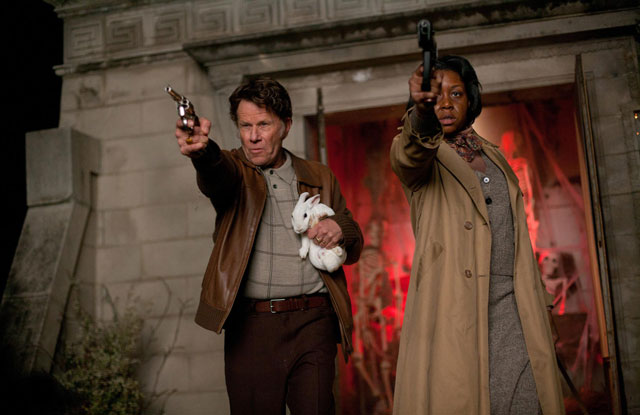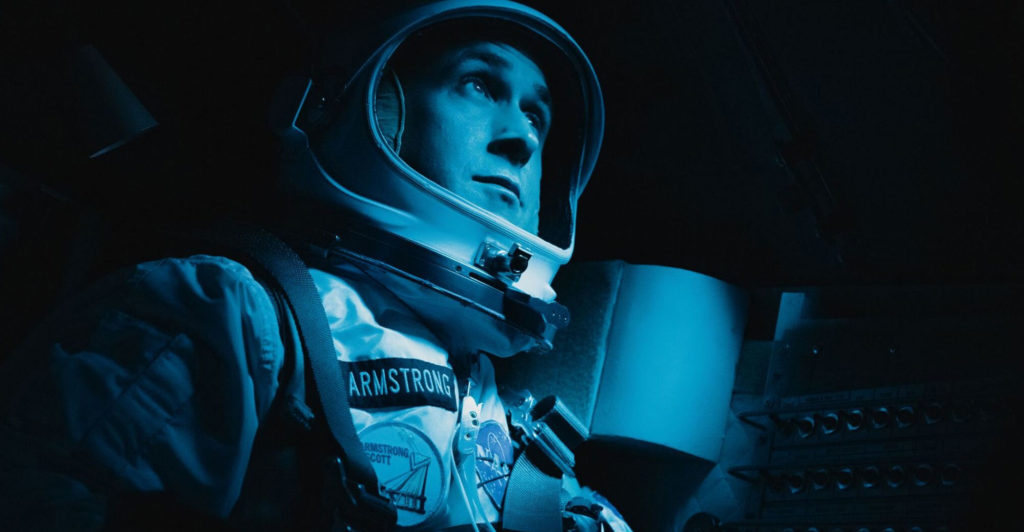
Serial killers kill serial killers in Seven Psychopaths, a Hollywood film about an Irish screenwriter in Hollywood written by an Irish screenwriter. It is yet another snarky movie about the movies, a meta-meta-film that borrows liberally from the likes of Quentin Tarantino, Charlie Kaufman and the Coen brothers.
The film is a crack at the Hollywood big time for playwright Martin McDonagh, who made his transition from stage to screen with his brilliant directorial debut In Bruges. The ramshackle Seven Psychopaths is not as good as that smaller movie, but it has almost enough freewheeling charm to hide that it is empty and perhaps a little silly at its core.
Seven Psychopaths is about Marty (played by Colin Farrell, as good here as in In Bruges), a screenwriter battling to complete his next script and perhaps a stand-in for the author. Suffering from writer’s block and constantly liquored up, Marty can get no further with his script than the humdinger of a title, Seven Psychopaths.
But Marty gets some inspiration when he gets entangled with some real-life murderers after two friends snatch a gangster’s prized Shih Tzu. Reality and Marty’s script begin to bleed into each other as more psychopaths, real and imaginary, get thrown into the mix as he collects anecdotes about killers from his friends in Los Angeles.
Seven Psychopaths trailer (via YouTube):
The great pleasures of Seven Psychopaths lie in the absurdist humour of McDonagh’s hilarious, endlessly quotable dialogue, and in its cast of great character actors. Farrell is the straight man to a deranged crew that includes Sam Rockwell as a chirpy friend, Tom Waits as a lovelorn, bunny-bearing killer of killers and Woody Harrelson as a cold-blooded gangster with a soft spot for his dog. The standout performance is Christopher Walken in his best role in years.
Seven Psychopaths doesn’t take itself terribly seriously, and doesn’t expect you to either. Its loose composition makes it feel like a jam, a series of riffs on the dafter excesses of gangster and noir films. The film loses momentum and direction well before it ends, but the one-liners stay on course even when the plot doesn’t.
Rockwell’s Billy Bickle, named for one of cinema’s most famous psychopaths in Taxi Driver’s Travis Bickle, gets the best lines: “I didn’t mean to break his nose. His nose was just in the middle of where I was punching.” And in one of the smartest stabs at one of the dumbest movie conventions, Bickle remarks: “You can’t let the animals die in a movie — only the women.”
But all too often, this self-awareness is lazily used for cheap laughs or as a get-of-out-jail-free card. Though McDonagh is canny enough to point to the narrative traps of the genre — the convenient deus ex machina, the offhand treatment of female characters — he isn’t wise enough to escape them. Like his characters, he is trapped in a movie in a movie in a movie… — (c) 2013 NewsCentral Media
- Read more movie and game reviews by Lance Harris




